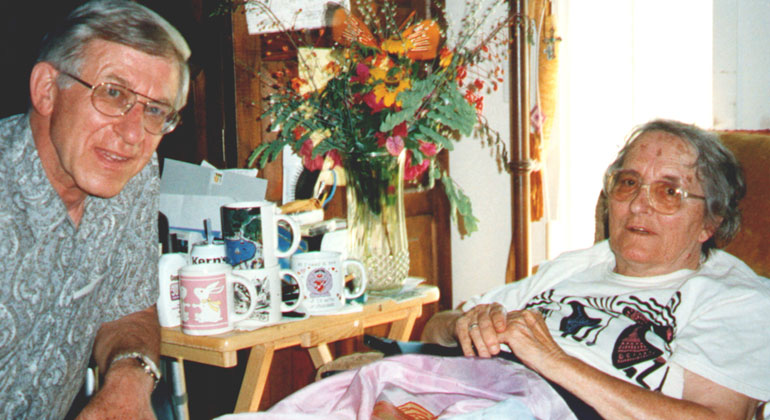What does Remembrance Sunday tell us?
This year, Remembrance Sunday falls on 25 November, as always on the Sunday before the first Sunday in Advent. This morning, my wife asked me what Remembrance Sunday has to do with climate change.
Behind this question, of course, lies the question of death. Do we expect ‘nothingness’ or ‘eternal life’ in the spiritual world?
I discussed the connection between this expectation and climate change with my friend, the Dalai Lama. He said: ‘We Buddhists believe in rebirth, and for that reason alone we are committed to the climate and to climate protection. After all, we want to be reborn on a planet that is worth living on, with a good climate.’
Many people who have had a near-death experience say something similar, such as the well-known death researcher Elisabeth Kübler-Ross. This Swiss woman was awarded 23 honorary medical degrees for her work with dying people and was named one of the ‘100 most important thinkers of the 20th century’ by Time magazine. Ms Kübler-Ross, who held hundreds of dying people in her arms, realised that ‘it is in dying that we learn most about life.’ That is why boxing world champion Muhammad Ali celebrated the death researcher as the ‘world champion of life.’ And in July 2024, pop singer Taylor Swift compiled a series of Apple Music playlists (playlists on the ‘five stages of heartbreak’) based on Elisabeth Kübler-Ross’s ‘five stages of dying.’
A few weeks ago, my favourite cameraman, Peter Wendt, passed away. His family invited guests to a ‘celebration of life’. In our time, more and more people understand what those who have had near-death experiences tell us: death is not the last word, and it does not have the last word. Love is stronger than death.
All religious founders and wisdom teachers were also convinced of this. I was able to interview Elisabeth Kübler-Ross about near-death experiences. I asked her for a title for this interview on ARD. Her suggestion: ‘Death is a wonderful experience.’ We broadcast this interview at least five times on German television – at the request of viewers.
Today, more than ever before, the science of death research is focusing on the significance of death for our lives. And one of the crucial questions here is the future of the climate. One of the findings of modern death research is that almost all people who have had near-death experiences change their lives: for them, in the spirit of Erich Fromm, ‘being’ becomes more important than ‘having’.
People who have had near-death experiences change their ideas about life and love. Their credo is: ‘The most important thing is love.’ And part of this love is learning to understand climate change as a matter of survival for humanity and for our children and grandchildren.
People who have had near-death experiences speak of a universal connectedness that they have experienced through a radiant light. This experience leads many to turn away from material values and towards a deep connection with themselves, with other people and with nature. In Germany, around four million people have already had a near-death experience. They will change the society of the living. A glimpse into another world teaches us a ‘physics of immortality’. This is the title of renowned physics professor Frank J. Tipler’s book on the subject.
Source
Franz Alt 2025| Translated with www.DeepL.com/Translator









